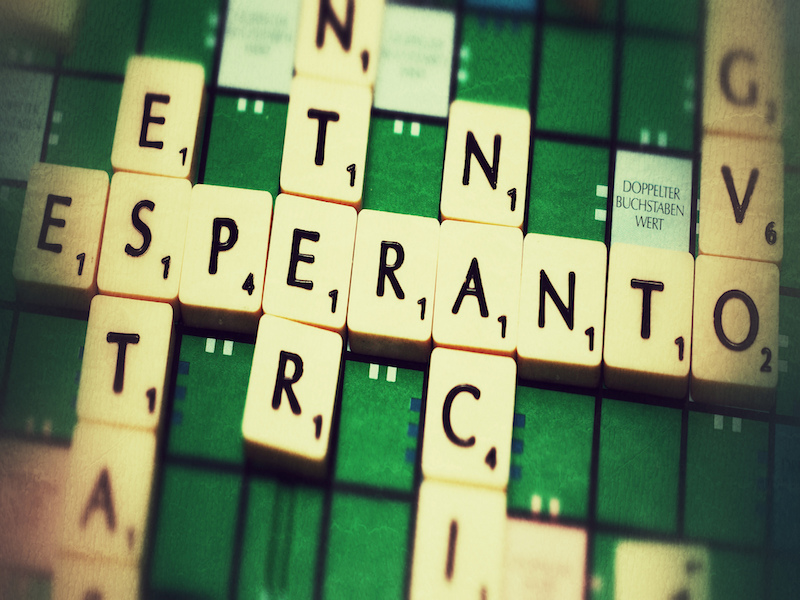Why learn Esperanto?
Well, the most obvious answer for this question is as follows: Esperanto is not only the easiest language to learn, but it is also a great linguistic training tool that helps you study any other language in the world. The amount of people who already speak only Esperanto is about two million people around the world. If you are studying Esperanto, you are learning a piece of all other languages, and it allows you to learn a second or third language faster and more easily.
The propaedeutic value of Esperanto is its benefit as an introduction to the study of subsequent foreign languages. Several studies, such as that of Helmar Frank at the University of Paderborn and the San Marino International Academy of Sciences, have concluded that one year of Esperanto in school produces an ability equivalent to what the average pupil reaches with European national languages after six to seven years of study.
It improves the ability of the pupil to learn a target language when compared to pupils who spend their entire time learning strictly the target language. In other words, studying Esperanto for one year followed by French for three years results in greater proficiency in French than studying French for four years. This effect was first described by Antoni Grabowski in 1908.
This is called the language teaching introductory effect: A simplified general learning experiment gives an analogy to the way learning Esperanto first may cut learning time later on with another language.
The Institute of Pedagogic Cybernetics at the University of Paderborn in Germany confirmed that when learning a foreign language, preparatory teaching of Esperanto helps students to become aware of the essential characteristics of languages. It uses the international language Esperanto as a model, a language with a clear and simple structure. Esperanto is almost completely regular, and thanks to its agglutinative character, is detachable into combinable morphological elements. This makes it a model easy to assimilate, and learners develop an aptitude for the study of other languages.
Even before the experiments conducted by Prof. Helmar Frank in Germany, similar research was conducted in Hungary by I. Szerdahelyi of the University of Science in Budapest. A group of native Hungarian speakers, after having studied Esperanto for two years in the third and fourth grade of elementary school, then split up to learn Russian, German, English, and French.
According to the results, preliminary Esperanto study led to a 25% improvement in acquiring Russian, 30% for German, 40% for English, and even 50% for French. In other words, children who had received preparatory teaching obtained notably better results than their peers who had not had an analogous introduction to the study of foreign languages. This system of preparatory instruction was put into practice in Germany with the sole aim of finding a way of facilitating the learning of English.
People who speak Esperanto often speak a little bit of English, Spanish, German, Italian, or French, in addition to Japanese, Chinese, Turkish, Quechua or Swahili. They are able to learn these latter languages because Esperanto is grammatically more similar to non-European languages. Learning one of these interesting languages will be easier and faster for you.
Based on these benefits of learning Esperanto, you now probably want to study this language. Luckily, there are thousands of books, exercises and websites to help you do it. But what is the best way of learning Esperanto?
The answer is: Getting a good coach.
Why do you need an Esperanto coach and how do you find a good one?
When thinking about learning Esperanto, you might think it entails learning by yourself with an old book from the 19th century, or an old fashioned computer program. You are learning the easiest language of the world to become a real polyglot, but you may feel overwhelmed or lost with so much information that is repeated over and over.
After memorizing dozens of words and basic grammar rules, you might feel motivated by the fast learning, but at the same time you might also think that you are wasting your time studying the wrong way and without guidance. There are so many questions and not many answers in your mother tongue… But don't give up, you simply need a coach!
How does Esperanto help me to learn other languages? Are there any scientific studies that prove that? What is the right way to learn Esperanto to become a real polyglot? Do I have good pronunciation? If I don't have the right software, should I replace special letters by chu, cxu, or c’u? Am I using the accusative correctly? Who is whom in Esperantujo? How is the Esperanto community? What is Raûmismo, Finvenkismo, Civito, Pasporta Servo, etc? Is there an official diploma? Can I study Esperanto at university? Is there a degree or an official master of Esperanto?
A personal coach is a very important factor in your first steps to learning any foreign language. In this case, Esperanto is not an exception. Nowadays thanks to the internet, it is relatively easy to find nice people that are able to help you. The problem is that they usually don't have any formal education or experience in teaching. The most experienced Esperanto speakers are generally involved with their own business. So what can you do?
The internet gives us a great space filled with many opportunities. You can:
- Search Esperanto teachers on italki
- Ask questions and solve your language problems on italki
- Contact your local association of Esperanto and follow courses
- Check out edukado.net
There is a wonderful world waiting for you within the Esperanto community, as well as the possibility to quickly and easily increase your skills of a foreign language. Will you lose this chance? Go on!
For more information on the benefits of learning Esperanto, follow this link.
Image Sources







